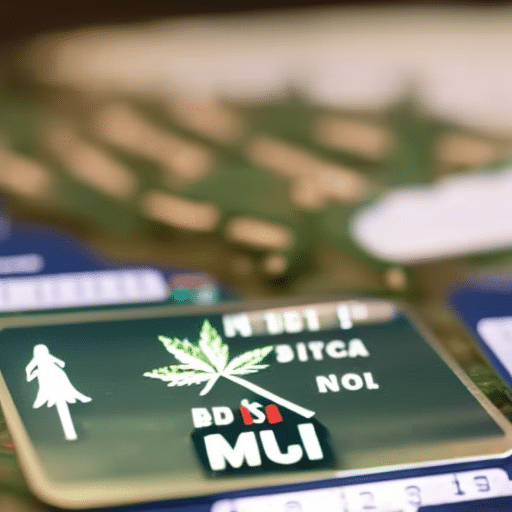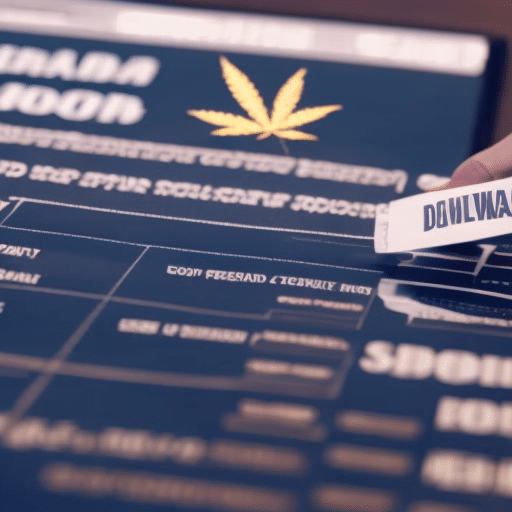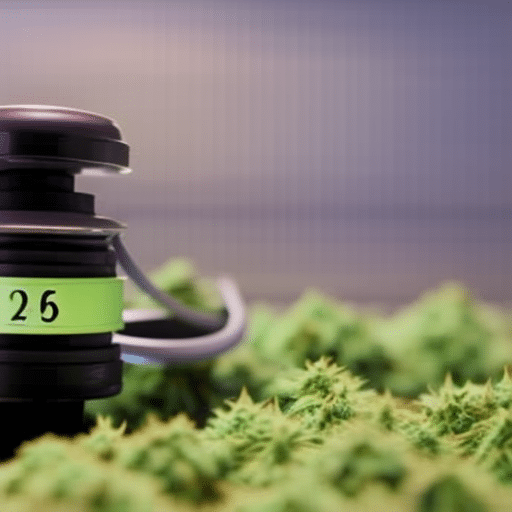Exploring the realm of medical marijuana within Delaware can be likened to navigating a complex maze – one that requires precision and proper guidance for a secure passage. Pursuing an MMJ card as delineated by SB17 paves the way to a myriad of advantages, confirming that your medical use adheres to the legal framework.
Table of Contents
By understanding the criteria for eligibility, familiarizing yourself with the application procedure, and recognizing the legal safeguards in place, you are taking proactive steps to ensure your privacy and compliance.
Engage with Delaware’s medical marijuana program to confidently chart your course in this therapeutic landscape.
Benefits of Holding an MMJ Card

Possessing an MMJ card in Delaware grants you legal protection and access to medical cannabis under the state’s SB17 legislation. This card empowers you with the ability to select from a range of consumption methods tailored to your personal health needs and preferences. Whether it’s through inhalation, topical application, or oral ingestion, you’re able to choose the method that best complements your treatment plan.
Moreover, the MMJ card unlocks access to a diverse strain variety, each with unique profiles of cannabinoids and terpenes. This variety is crucial as different strains can have distinct therapeutic effects, allowing you to find the one that most effectively alleviates your symptoms.
Your journey toward symptom management is thus personalized and protected within the legal framework.
Eligibility Criteria for Applicants

To determine if you’re qualified for these benefits, it’s essential to understand Delaware’s eligibility criteria for an MMJ card under SB17. You must have one or more chronic conditions recognized by the state. Physician consultation is mandatory, during which a licensed doctor must confirm that you suffer from a qualifying condition and that MMJ could help alleviate your symptoms.
| Chronic Conditions | Physician Consultation |
|---|---|
| Recognized by the state | Must confirm qualifying condition |
| Debilitating and chronic in nature | A belief that MMJ could help |
| Specific ailments listed in SB17 | Ongoing doctor-patient relationship required |
Your struggle with chronic conditions is deeply personal, and seeking relief through MMJ is a legitimate and compassionate choice. Remember, the path to an MMJ card starts with understanding these criteria and consulting with a physician who can support your journey to wellness.
Navigating the Application Process

Once you’ve met the eligibility criteria, you’ll need to navigate through the application process for your MMJ card in Delaware with precision and care. Application pitfalls are common, and avoiding them requires attention to detail, especially with documentation requirements.
You’ll need to gather relevant medical records, proof of residency, and possibly more. Each piece of documentation serves as a critical component of your application, and any discrepancies can lead to delays or denial of your MMJ card.
Remember, the state’s review of your application is stringent. It’s essential to double-check all forms for accuracy and completeness. If you’re unsure about a requirement, seek clarification rather than risk a mistake.
Your thoroughness now can significantly streamline your journey to receiving your MMJ card.
Legal Protections and Privacy

Your MMJ card under Delaware’s SB17 provides you with vital legal protections and ensures your medical privacy. Holding this card means you’re compliant with state laws when using medical marijuana for your condition. It’s a safeguard against state surveillance that might otherwise question the legality of your marijuana possession and use. Moreover, your status as an MMJ cardholder is protected health information, not subject to casual disclosure.
Understanding insurance implications is also essential. While insurers don’t cover medical cannabis, having an MMJ card separates your legal treatment from recreational use, potentially influencing your insurer’s perception of risk. It’s crucial to navigate these waters carefully, maintaining your privacy while benefiting from the protections the law affords.
Renewal and Ongoing Compliance

Maintaining your MMJ card’s validity ensures continued adherence to Delaware’s SB17, protecting your right to use medical marijuana without legal repercussions. It’s crucial to be mindful of renewal fees and stay vigilant about compliance challenges that may arise.
Here’s a concise table to help you understand the renewal process and compliance requirements:
| Aspect | Detail |
|---|---|
| Renewal Frequency | Every year |
| Documentation | Proof of continued qualification |
| Renewal Fees | Vary; check current rates |
| Compliance Reminder | Adhere to possession limits |
Frequently Asked Questions
How Does Having an MMJ Card in Delaware Affect My Ability to Own or Purchase Firearms?
Having an MMJ card can complicate your firearm eligibility due to legal nuances; federal laws may conflict with state regulations, possibly affecting your ability to own or buy guns. It’s important to understand these distinctions.
Can I Use My Delaware MMJ Card in Other States That Have Legalized Medical Marijuana?
You can’t automatically use your Delaware MMJ card elsewhere due to reciprocity limitations. Travel considerations are crucial; check each state’s laws to ensure you comply and avoid legal issues with your medication.
Are There Any Tax Benefits or Deductions Available for MMJ Cardholders in Delaware?
You’re navigating a financial labyrinth; unfortunately, Delaware doesn’t offer tax benefits or deductions for MMJ cardholders. Understanding the tax implications is crucial, yet no medical deductions currently lighten this part of your journey.
How Does Delaware’s SB17 Impact the Employer’s Right to Drug Test for Marijuana, and What Are the Implications for MMJ Cardholders in the Workplace?
You’re protected from workplace discrimination under Delaware’s SB17, but employers can still drug test. Your MMJ card raises privacy concerns, so it’s crucial to understand your rights in these situations.
Can MMJ Cardholders Grow Their Own Cannabis at Home Under Delaware’s SB17, or Are They Restricted to Purchasing From Dispensaries?
You can’t grow your own cannabis at home; SB17 restricts you to dispensaries. Despite the temptation, home cultivation could lead to legal penalties. It’s wise to adhere to the law for your peace of mind.
Conclusion
Obtaining an MMJ (Medical Marijuana) card in Delaware under SB17 offers more than mere compliance with state laws; it provides you with essential legal protection and access to quality-controlled cannabis for medicinal purposes.
By ensuring that you stay informed about the renewal process and the current regulations, you can confidently manage your health with the support of this program.
The importance of prioritizing your well-being can’t be overstated, and securing a medical marijuana card is a proactive measure to treat your health with the utmost seriousness.
Embrace the security and peace of mind that come with the legal and safe use of medical marijuana in Delaware by obtaining your MMJ card.

